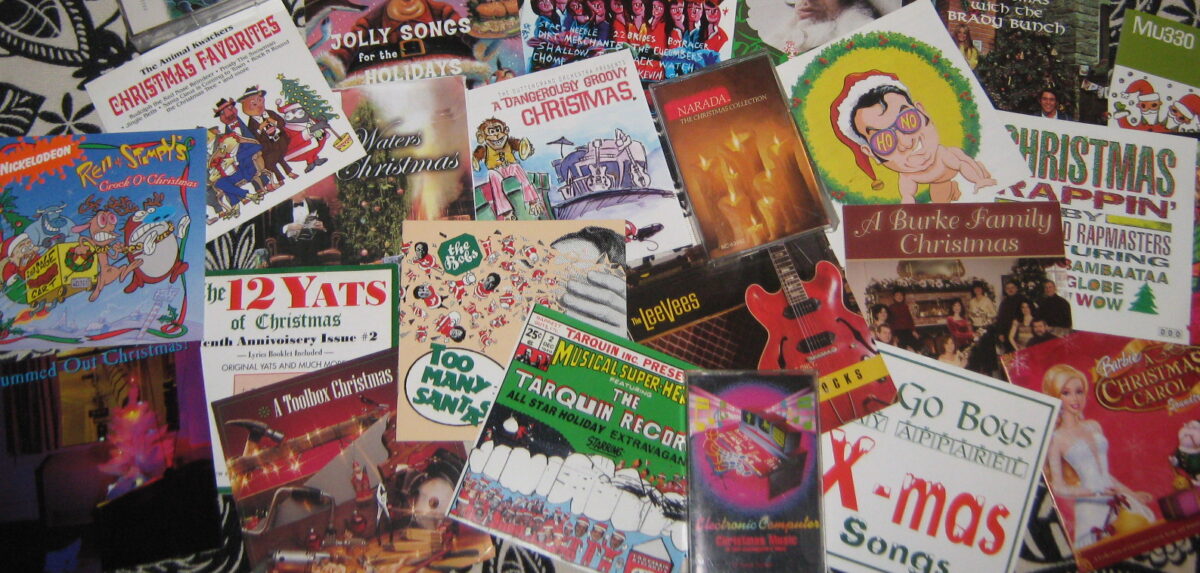The good ‘A Christmas Carol’s out there build on the textual Dickens. For example, StarKid’s “VHS Christmas Carol” is a bizarre multimedia synth fest from the ’80s. The original songs, sly anachronisms, and cabaret casualness make the serious-as-a-heart-attack moral seem more timeless. I’ve tagged “I’m the Ghost” before, but this historian’s lesson is disco-lite fun. Then the present ghost’s “Christmas Electricity” is disco-hard fun (with dance tutorial). Next, “The Final Ghost” showcases the Scrooge character’s comedy as he nearly raps to an unspeaking motivator. A moving operetta with a killer backbeat.
The 1992 “A Muppet Christmas Carol” wins the musicals award for best Dickens, though. Schmaltzy (“When Love is Gone“), but Paul Williams (“One More Sleep ’til Christmas“), so the songs are occasionally catchy (“Christmas Scat“) and the wordplay is precious (“Scrooge“). “Marley and Marley” is one of the better dance numbers–and it’s adapted so The Muppet Show duo elder hecklers fit the single role of Dante’s Virgil. But i’ve marked that song before. Let’s go with all the attributes in one song: “It Feels Like Christmas,” the ghost of Present making the case for love.



